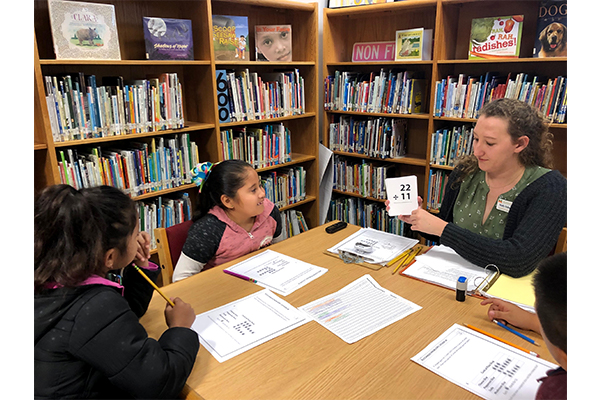Eleven College of Education research projects funded by more than $12 million in research grants from the Institute of Education Sciences have encountered significant roadblocks since researchers are unable to conduct in-person research.
In the summer, researchers were hopeful that in-person data collection would be possible by the fall, but as the school year drew near, they began discussing virtual alternatives, graduate research assistant Alexis Boucher said.
“We are not getting to actually implement our ideas in a school setting,” Boucher said. “We’ve had to completely redesign our approach to this study to ensure that the research moves ahead. The government funding needs to be used for actual research with children. It’s a scary time to be an education researcher because the whole foundation upon which our work operates is interaction with schools. In a time where human interaction is a safety issue, it doesn’t bode well for our efforts.”
In the spring, Austin ISD announced that they didn’t want any active data collection in schools for the entire school year, said Sarah Powell, a special education associate professor.
Powell said research involving intervention with students in a classroom has been postponed, but some virtual tutoring has continued.
“All of us are in constant communication with school principals, school teachers (and) the Texas Education Agency just to understand what is going on in schools and what we should be prepared for when students come back to school,” Powell said.
Graduate research assistant Katherine O’Donnell’s project, Temple, is focusing on virtual communication with teachers in order to glean insight from the student’s performance. O’Donnell said more than anything, she misses in-person interaction with the kids.
“There’s not as much connection with the kids, the people you are hoping to help,” O’Donnell said. “We haven’t done much virtually yet. Projects are still getting started right now.”
Another problem facing research projects is the added variable of virtual interaction with teachers and children, Boucher said. For example, when conducting student tests, researchers have to make sure the parents aren't helping their children.
“The problem is that most (past) research has not been done virtually, so you are adding a new variable to the research that was not intended,” Boucher said. “Those results may not transfer to in-person learning, which is the norm. Using a scientific approach to things, you want to keep things constant.”
Boucher said researchers considered pushing all projects back a year but decided not to in order to protect the graduate research assistants. Many graduate students within the College of Education depend on research hours to pay their tuition.
Boucher said the goal of this year is to meet the institution’s requirements by conducting meaningful virtual research.
“It is government money, and we want to make sure we use it in the most effective way possible,” Boucher said. “People thought, ‘How can we appease IES to do what we said we’d do in year one?’”
Editor's note: This story has been corrected to fix the spelling of the name of graduate research assistant Alexis Boucher and remove an imprecise reference to the timeline for the research projects.





















